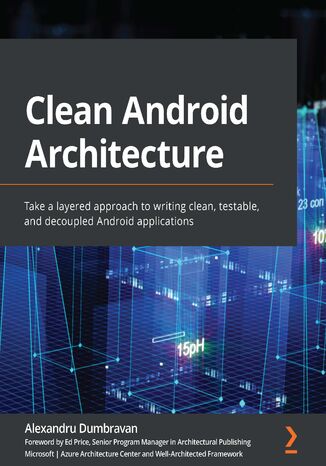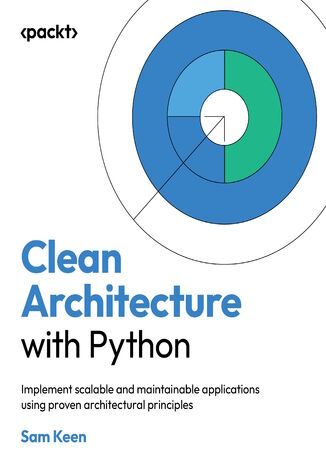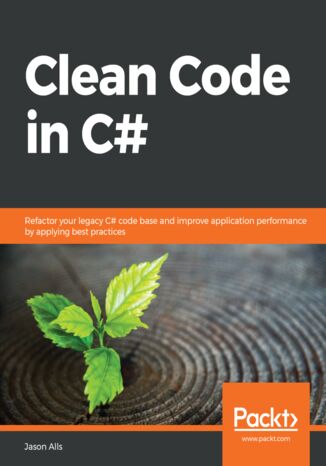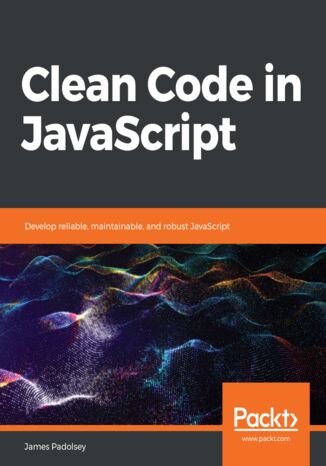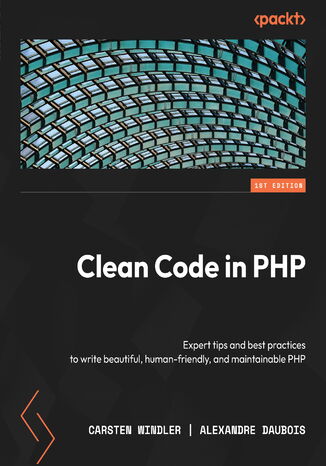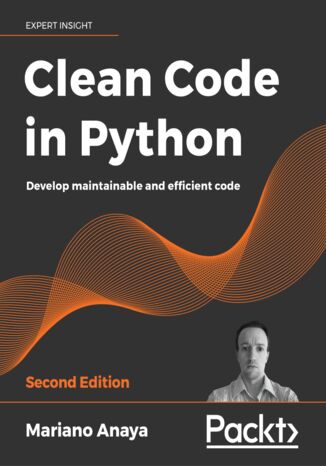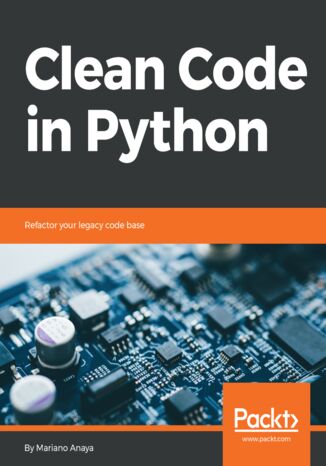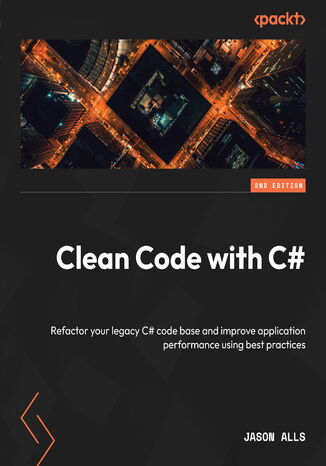Kategorie
-
- Bitcoin
- Bizneswoman
- Coaching
- Controlling
- E-biznes
- Ekonomia
- Finanse
- Giełda i inwestycje
- Kompetencje osobiste
- Komputer w biurze
- Komunikacja i negocjacje
- Mała firma
- Marketing
- Motywacja
- Multimedialne szkolenia
- Nieruchomości
- Perswazja i NLP
- Podatki
- Polityka społeczna
- Poradniki
- Prezentacje
- Przywództwo
- Public Relation
- Raporty, analizy
- Sekret
- Social Media
- Sprzedaż
- Start-up
- Twoja kariera
- Zarządzanie
- Zarządzanie projektami
- Zasoby ludzkie (HR)
-
- Architektura i wnętrza
- BHP
- Biznes i Ekonomia
- Dom i ogród
- E-Biznes
- Ekonomia i finanse
- Ezoteryka
- Finanse
- Finanse osobiste
- Firma
- Fotografia
- Informatyka
- Kadry i płace
- Kobieca
- Komputery, Excel
- Księgowość
- Kultura i literatura
- Naukowe i akademickie
- Ochrona środowiska
- Opiniotwórcze
- Oświata
- Podatki
- Podróże
- Psychologia
- Religia
- Rolnictwo
- Rynek książki i prasy
- Transport i Spedycja
- Zdrowie i uroda
-
- Aplikacje biurowe
- Bazy danych
- Bioinformatyka
- Biznes IT
- CAD/CAM
- Digital Lifestyle
- DTP
- Elektronika
- Fotografia cyfrowa
- Grafika komputerowa
- Gry
- Hacking
- Hardware
- IT w ekonomii
- Pakiety naukowe
- Podręczniki szkolne
- Podstawy komputera
- Programowanie
- Programowanie mobilne
- Serwery internetowe
- Sieci komputerowe
- Start-up
- Systemy operacyjne
- Sztuczna inteligencja
- Technologia dla dzieci
- Webmasterstwo
-
- Antologie
- Ballada
- Biografie i autobiografie
- Dla dorosłych
- Dramat
- Dzienniki, pamiętniki, listy
- Epos, epopeja
- Esej
- Fantastyka i science-fiction
- Felietony
- Fikcja
- Humor, satyra
- Inne
- Klasyczna
- Kryminał
- Literatura faktu
- Literatura piękna
- Mity i legendy
- Nobliści
- Nowele
- Obyczajowa
- Okultyzm i magia
- Opowiadania
- Pamiętniki
- Podróże
- Poemat
- Poezja
- Polityka
- Popularnonaukowa
- Powieść
- Powieść historyczna
- Proza
- Przygodowa
- Publicystyka
- Reportaż
- Romans i literatura obyczajowa
- Sensacja
- Thriller, Horror
- Wywiady i wspomnienia
-
- Archeologia
- Bibliotekoznawstwo
- Filmoznawstwo
- Filologia
- Filologia polska
- Filozofia
- Finanse i bankowość
- Geografia
- Gospodarka
- Handel. Gospodarka światowa
- Historia i archeologia
- Historia sztuki i architektury
- Kulturoznawstwo
- Lingwistyka
- Literaturoznawstwo
- Logistyka
- Matematyka
- Medycyna
- Nauki humanistyczne
- Pedagogika
- Pomoce naukowe
- Popularnonaukowa
- Pozostałe
- Psychologia
- Socjologia
- Teatrologia
- Teologia
- Teorie i nauki ekonomiczne
- Transport i spedycja
- Wychowanie fizyczne
- Zarządzanie i marketing
-
- BHP
- Historia
- Kodeks drogowy. Prawo jazdy
- Nauki prawne
- Ochrona zdrowia
- Ogólne, kompendium wiedzy
- Podręczniki akademickie
- Pozostałe
- Prawo budowlane i lokalowe
- Prawo cywilne
- Prawo finansowe
- Prawo gospodarcze
- Prawo gospodarcze i handlowe
- Prawo karne
- Prawo karne. Przestępstwa karne. Kryminologia
- Prawo międzynarodowe
- Prawo międzynarodowe i zagraniczne
- Prawo ochrony zdrowia
- Prawo oświatowe
- Prawo podatkowe
- Prawo pracy i ubezpieczeń społecznych
- Prawo publiczne, konstytucyjne i administracyjne
- Prawo rodzinne i opiekuńcze
- Prawo rolne
- Prawo socjalne, prawo pracy
- Prawo Unii Europejskiej
- Przemysł
- Rolne i ochrona środowiska
- Słowniki i encyklopedie
- Zamówienia publiczne
- Zarządzanie
-
- Afryka
- Albumy
- Ameryka Południowa
- Ameryka Środkowa i Północna
- Australia, Nowa Zelandia, Oceania
- Austria
- Azja
- Bałkany
- Bliski Wschód
- Bułgaria
- Chiny
- Chorwacja
- Czechy
- Dania
- Egipt
- Estonia
- Europa
- Francja
- Góry
- Grecja
- Hiszpania
- Holandia
- Islandia
- Litwa
- Łotwa
- Mapy, Plany miast, Atlasy
- Miniprzewodniki
- Niemcy
- Norwegia
- Podróże aktywne
- Polska
- Portugalia
- Pozostałe
- Przewodniki po hotelach i restauracjach
- Rosja
- Rumunia
- Słowacja
- Słowenia
- Szwajcaria
- Szwecja
- Świat
- Turcja
- Ukraina
- Węgry
- Wielka Brytania
- Włochy
-
- Filozofie życiowe
- Kompetencje psychospołeczne
- Komunikacja międzyludzka
- Mindfulness
- Ogólne
- Perswazja i NLP
- Psychologia akademicka
- Psychologia duszy i umysłu
- Psychologia pracy
- Relacje i związki
- Rodzicielstwo i psychologia dziecka
- Rozwiązywanie problemów
- Rozwój intelektualny
- Sekret
- Seksualność
- Uwodzenie
- Wygląd i wizerunek
- Życiowe filozofie
-
- Bitcoin
- Bizneswoman
- Coaching
- Controlling
- E-biznes
- Ekonomia
- Finanse
- Giełda i inwestycje
- Kompetencje osobiste
- Komunikacja i negocjacje
- Mała firma
- Marketing
- Motywacja
- Nieruchomości
- Perswazja i NLP
- Podatki
- Polityka społeczna
- Poradniki
- Prezentacje
- Przywództwo
- Public Relation
- Sekret
- Social Media
- Sprzedaż
- Start-up
- Twoja kariera
- Zarządzanie
- Zarządzanie projektami
- Zasoby ludzkie (HR)
-
- Antologie
- Ballada
- Biografie i autobiografie
- Dla dorosłych
- Dramat
- Dzienniki, pamiętniki, listy
- Epos, epopeja
- Esej
- Fantastyka i science-fiction
- Felietony
- Fikcja
- Humor, satyra
- Inne
- Klasyczna
- Kryminał
- Literatura faktu
- Literatura piękna
- Mity i legendy
- Nobliści
- Nowele
- Obyczajowa
- Okultyzm i magia
- Opowiadania
- Pamiętniki
- Podróże
- Poezja
- Polityka
- Popularnonaukowa
- Powieść
- Powieść historyczna
- Proza
- Przygodowa
- Publicystyka
- Reportaż
- Romans i literatura obyczajowa
- Sensacja
- Thriller, Horror
- Wywiady i wspomnienia
-
- Filozofie życiowe
- Komunikacja międzyludzka
- Mindfulness
- Ogólne
- Perswazja i NLP
- Psychologia akademicka
- Psychologia duszy i umysłu
- Psychologia pracy
- Relacje i związki
- Rodzicielstwo i psychologia dziecka
- Rozwiązywanie problemów
- Rozwój intelektualny
- Sekret
- Seksualność
- Uwodzenie
- Wygląd i wizerunek
- Życiowe filozofie
As an application’s code base increases, it becomes harder for developers to maintain existing features and introduce new ones. In this clean architecture book, you'll learn to identify when and how this problem emerges and how to structure your code to overcome it.The book starts by explaining clean architecture principles and Android architecture components and then explores the tools, frameworks, and libraries involved. You’ll learn how to structure your application in the data and domain layers, the technologies that go in each layer, and the role that each layer plays in keeping your application clean. You’ll understand how to arrange the code into these two layers and the components involved in assembling them. Finally, you'll cover the presentation layer and the patterns that can be applied to have a decoupled and testable code base.By the end of this architecture book, you'll be able to build an application following clean architecture principles and have the knowledge you need to maintain and test the application easily.
In the rapidly evolving tech industry, software applications struggle to keep pace with changing business needs, leaving developers grappling with complex codebases that resist change, ultimately reducing productivity and increasing technical debt. Clean Architecture with Python offers a powerful approach to address these challenges. Drawing from his extensive experience architecting cloud-native systems, Sam Keen helps you transform complex architectural challenges into digestible, implementable solutions.This book teaches essential principles for effective development, emphasizing the Pythonic implementation of Clean Architecture. Through practical examples, you'll learn how to create modular, loosely coupled systems that are easy to understand, modify, and extend. The book covers key concepts such as the Dependency Rule, separation of concerns, and domain modeling, all tailored for Python development.By the end of this book, you'll be able to apply Clean Architecture principles effectively in your Python projects. Whether you're building new systems or managing existing ones, you'll have the skills to create more maintainable and adaptable applications. This approach will enhance your ability to respond to changing requirements, setting you up for long-term success in your development career.
Traditionally associated with developing Windows desktop applications and games, C# is now used in a wide variety of domains, such as web and cloud apps, and has become increasingly popular for mobile development. Despite its extensive coding features, professionals experience problems related to efficiency, scalability, and maintainability because of bad code. Clean Code in C# will help you identify these problems and solve them using coding best practices.The book starts with a comparison of good and bad code, helping you understand the importance of coding standards, principles, and methodologies. You’ll then get to grips with code reviews and their role in improving your code while ensuring that you adhere to industry-recognized coding standards. This C# book covers unit testing, delves into test-driven development, and addresses cross-cutting concerns. You’ll explore good programming practices for objects, data structures, exception handling, and other aspects of writing C# computer programs. Once you’ve studied API design and discovered tools for improving code quality, you’ll look at examples of bad code and understand which coding practices you should avoid.By the end of this clean code book, you’ll have the developed skills you need in order to apply industry-approved coding practices to write clean, readable, extendable, and maintainable C# code.
Clean Code in JavaScript. Develop reliable, maintainable, and robust JavaScript
Building robust apps starts with creating clean code. In this book, you’ll explore techniques for doing this by learning everything from the basics of JavaScript through to the practices of clean code. You’ll write functional, intuitive, and maintainable code while also understanding how your code affects the end user and the wider community.The book starts with popular clean-coding principles such as SOLID, and the Law of Demeter (LoD), along with highlighting the enemies of writing clean code such as cargo culting and over-management. You’ll then delve into JavaScript, understanding the more complex aspects of the language. Next, you’ll create meaningful abstractions using design patterns, such as the Class Pattern and the Revealing Module Pattern. You’ll explore real-world challenges such as DOM reconciliation, state management, dependency management, and security, both within browser and server environments. Later, you’ll cover tooling and testing methodologies and the importance of documenting code. Finally, the book will focus on advocacy and good communication for improving code cleanliness within teams or workplaces, along with covering a case study for clean coding.By the end of this book, you’ll be well-versed with JavaScript and have learned how to create clean abstractions, test them, and communicate about them via documentation.
Carsten Windler, Alexandre Daubois
PHP is a beginner-friendly language, but also one that is rife with complaints of bad code,;yet no clean code books are specific to PHP. Enter Clean Code in PHP. This book is a one-stop guide to learning the theory and best practices of clean code specific to real-world PHP app development environments.This PHP book is cleanly split to help you navigate through coding practices and theories to understand and adopt the nuances of the clean code paradigm. In addition to covering best practices, tooling for code quality, and PHP design patterns, this book also presents tips and techniques for working on large-scale PHP apps with a team and writing effective documentation for your PHP projects.By the end of this book, you’ll be able to write human-friendly PHP code, which will fuel your PHP career growth and set you apart from the competition.
Clean Code in Python. Develop maintainable and efficient code - Second Edition
Experienced professionals in every field face several instances of disorganization, poor readability, and testability due to unstructured code.With updated code and revised content aligned to the new features of Python 3.9, this second edition of Clean Code in Python will provide you with all the tools you need to overcome these obstacles and manage your projects successfully.The book begins by describing the basic elements of writing clean code and how it plays a key role in Python programming. You will learn about writing efficient and readable code using the Python standard library and best practices for software design.The book discusses object-oriented programming in Python and shows you how to use objects with descriptors and generators. It will also show you the design principles of software testing and how to resolve problems by implementing software design patterns in your code. In the concluding chapter, we break down a monolithic application into a microservices-based one starting from the code as the basis for a solid platform.By the end of this clean code book, you will be proficient in applying industry-approved coding practices to design clean, sustainable, and readable real-world Python code.
Clean Code in Python. Refactor your legacy code base
Python is currently used in many different areas such as software construction, systems administration, and data processing. In all of these areas, experienced professionals can find examples of inefficiency, problems, and other perils, as a result of bad code. After reading this book, readers will understand these problems, and more importantly, how to correct them. The book begins by describing the basic elements of writing clean code and how it plays an important role in Python programming. You will learn about writing efficient and readable code using the Python standard library and best practices for software design. You will learn to implement the SOLID principles in Python and use decorators to improve your code. The book delves more deeply into object oriented programming in Python and shows you how to use objects with descriptors and generators. It will also show you the design principles of software testing and how to resolve software problems by implementing design patterns in your code. In the final chapter we break down a monolithic application to a microservice one, starting from the code as the basis for a solid platform. By the end of the book, you will be proficient in applying industry approved coding practices to design clean, sustainable and readable Python code.
Traditionally associated with Windows desktop applications and game development, C# has expanded into web, cloud, and mobile development. However, despite its extensive coding features, professionals often encounter issues with efficiency, scalability, and maintainability due to poor code. Clean Code in C# guides you in identifying and resolving these problems using coding best practices.This book starts by comparing good and bad code to emphasize the importance of coding standards, principles, and methodologies. It then covers code reviews, unit testing, and test-driven development, and addresses cross-cutting concerns. As you advance through the chapters, you’ll discover programming best practices for objects, data structures, exception handling, and other aspects of writing C# computer programs. You’ll also explore API design and code quality enhancement tools, while studying examples of poor coding practices to understand what to avoid.By the end of this clean code book, you’ll have the developed the skills needed to apply industry-approved coding practices to write clean, readable, extendable, and maintainable C# code.

